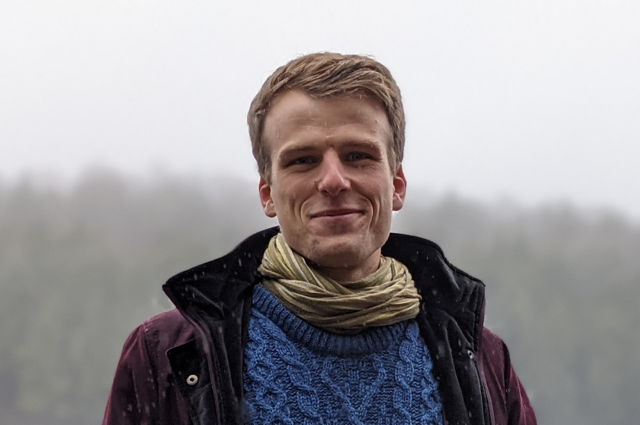
Who sees what online — and why
Andreas Haupt is a PhD candidate in Engineering-Economic Systems at IDSS, and the Computer Science and Artificial Intelligence Laboratory (CSAIL). He obtained his MS in Economics and Mathematics from the University of Bonn, and his BS in Computer Science from the University of Frankfurt. He has worked in platform enforcement on both sides of the Atlantic. During his time at MIT, he has led the Science Policy Initiative and the MIT AI Ethics and Policy group.
What is the focus of your research? What sort of knowledge and disciplines does it bring together? How will it make an impact?
I design markets in the age of machine learning. The market is my connection to economics and by “market”, I mean any technology that helps people to get what they want. There are markets where people interact with it through money, but lots of work in economics has been done regarding the design of money-free markets. For example, designing the rules of how students are assigned to schools they’d like to attend. My focus is one type of money-free market: the recommendation system. Whenever a service online chooses what you see—for example on Instagram, TikTok, or Snapchat—such a system is at work.
Market Design not only discusses such technologies in the abstract, but it pays attention to details and complications. In the case of market design with machine learning, I propose concrete algorithms to use on real data. I frequently use algorithms that are “online”, that is, that make decisions while receiving data, at no point the data to base decisions on is “complete”. For recommender systems, these decisions consist of recommendations, the data consists of user interactions with recommendations, and the system attempts to learn what users would like.
What did you do before IDSS and why did you choose SES?
I was a high school teacher in Germany, where I taught math and computer science. I saw how data transformed both what my colleagues and I were teaching, but also the jobs my students wanted to get into. I wanted to devote myself more to understanding a world full of data. I applied to Ph.D. programs in the U.S. given the—compared to Europe—well-developed programs in, broadly, data science. SES certainly stood out as a very ambitious program, in forcing candidates to become fluent both in engineering and in social science—I loved it.
What are your favorite things about the IDSS and MIT communities? What do you do for fun?
I love the curiosity and ambition in this community. It is quite striking to me how many people I have come across who, in response to a passing reference to a concept, will return after a few weeks having mastered the concept, apparently learning from books for themselves, only to apply it to a problem they were working on. What I love about IDSS in particular is that there is a clear sense that the thing you are learning and the problem you are solving are only constrained by the problem, and not by disciplines. I feel welcome, given my shared identity as a computer scientist and economist.
In my private life, I like cooking, chance encounters at the many social events around Cambridge (or at CSAIL’s espresso machine), and the feeling of accomplishment after an early gym session with friends.



